News roundup January to March 2025
Asia-Pacific animal health news roundup
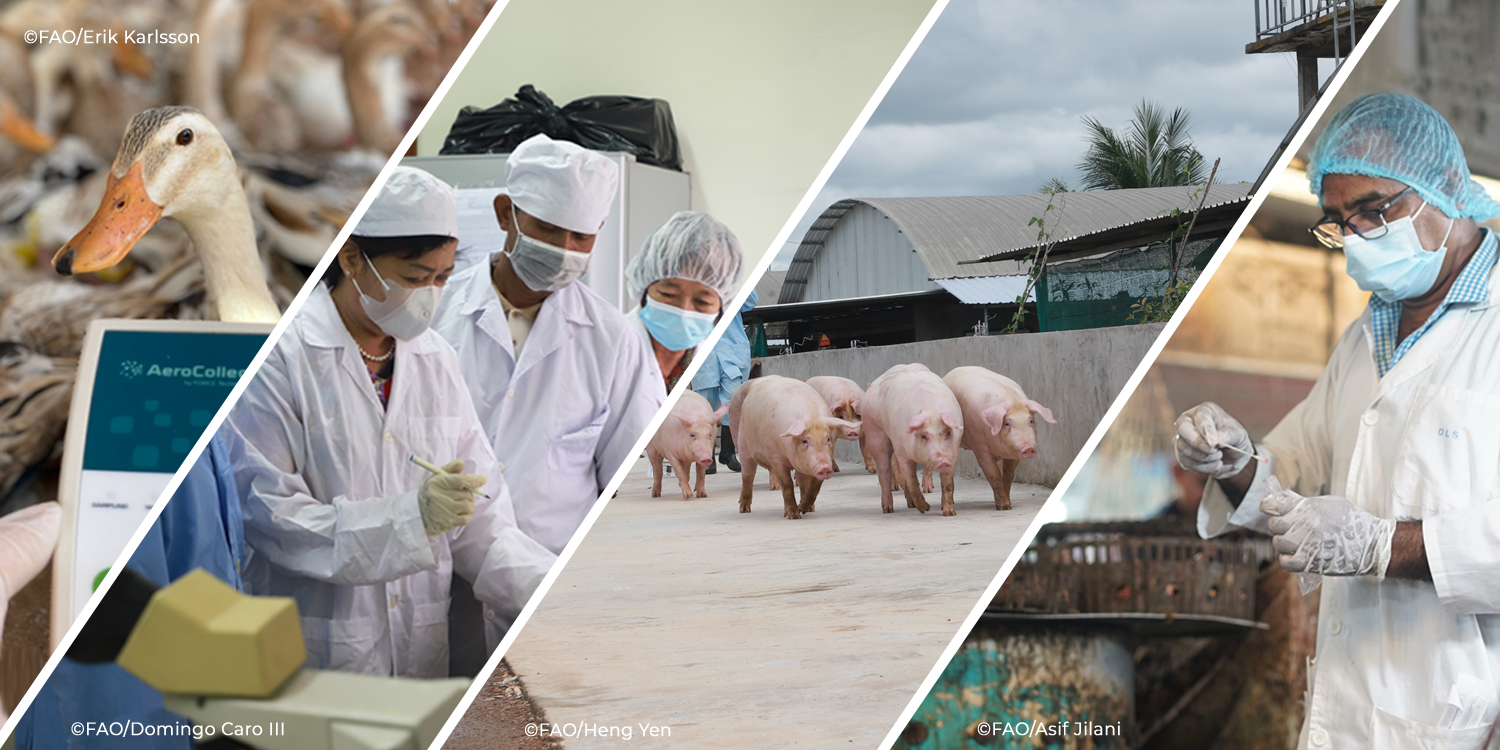
Latest activities from FAO’s regional and country teams.
In this news roundup
PARTNERSHIPS | ||
|---|---|---|
|
| ASIA AND THE PACIFIC FAO and Australia launch regional initiative to strengthen animal health systems FAO with support from the Australian Government, has launched a three-year initiative to enhance animal health systems in Southeast Asia and the Pacific. The project aims to improve disease prevention, detection and response by strengthening veterinary workforce capacities, surveillance systems, biosecurity and early warning mechanisms across eight Member Nations. Read the news here. | |
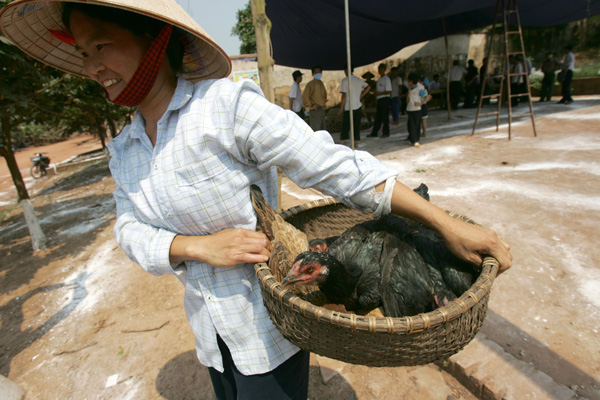 ©FAO/Hoang Dinh Nam | VIET NAM Japan supports FAO and IOM initiative to strengthen cross-border health security The Government of Japan has contributed USD 1.5 million to a joint FAO–IOM initiative enhancing health security in Viet Nam’s border provinces through the One Health approach. The project will strengthen early warning systems, disease detection and cross-sector collaboration in Ha Giang, Ha Tinh, Dong Thap and An Giang, protecting two million people from cross-border health threats. Read the news here. | |
|
| ASIA AND THE PACIFIC FAO showcases veterinary epidemiology and biosecurity solutions at VIV Asia 2025 FAO participated in VIV Asia 2025, hosting two sessions to promote veterinary epidemiology and community-driven biosecurity interventions across Asia and the Pacific. The first session launched the Epidemiology Network for Training, utilizing the Veterinary workforce, and Sharing evidence for Trust (ENTRVST) virtual hub, a peer-to-peer network supporting the veterinary epidemiology workforce through continuous learning and knowledge sharing. The second session highlighted success stories from the Community African swine fever Biosecurity Interventions (CABI) programme, showcasing participatory approaches that empower smallholder farmers in Indonesia and the Philippines to strengthen resilience against ASF. Supported by the Australian Government and the Republic of Korea, these initiatives advance One Health and sustainable livestock transformation. Watch the event recordings here: ENTRVST and CABI. | |
|
| INDONESIA AND ASIA AND THE PACIFIC Strengthening avian influenza preparedness in Indonesia FAO, in collaboration with the Coordinating Ministry for Human Development and Cultural Affairs (CMHDCA), held a cross-sectoral meeting in Jakarta last 16 January. Participants discussed avian influenza (AI) updates and developed a draft action plan for preparedness. With Indonesia’s history as a hub for highly pathogenic avian influenza (HPAI), the Ministry of Health issued a circular letter urging vigilance and preparedness against AI and acute respiratory infections. The meeting gathered various ministries and stakeholders to emphasize the need for better cross-sectoral coordination, improved surveillance systems and effective AI control measures. FAO Regional Office for Asia and the Pacific (RAP) provided insights into the global AI situation, underlining the importance of collaborative efforts to protect public health. | |
 © FAO | ASIA AND THE PACIFIC AND THAILAND National consultation for strengthening animal health and One Health systems in Thailand From 1 to 3 April, FAO and Thailand’s Department of Livestock Development held a national consultation workshop to strengthen animal health and One Health systems at national and sub-national levels. Sixty-four participants from nine regions and six national agencies across animal health, public health and wildlife sectors identified gaps, developed and prioritized solutions and actions aligning with existing strategies for improved coordination. The workshop strengthened collaboration and reinforced commitment to advancing animal health and One Health initiatives in Thailand. | |
|
| INDONESIA Consolidation meeting advances SIZE 2025 implementation FAO convened a meeting with CMHDCA and relevant stakeholders on 9 January to discuss the roadmap and timelines for implementing the national zoonoses and emerging infectious diseases information system (SIZE) 2025, which serves as a One Health information sharing platform. The meeting focused on translating directives from the Secretary of CMHDCA into actionable steps within the SIZE management framework, addressing system utilization challenges, data integration, system upgrades, and subnational activation. Follow-up coordination efforts were outlined to resolve these issues. | |
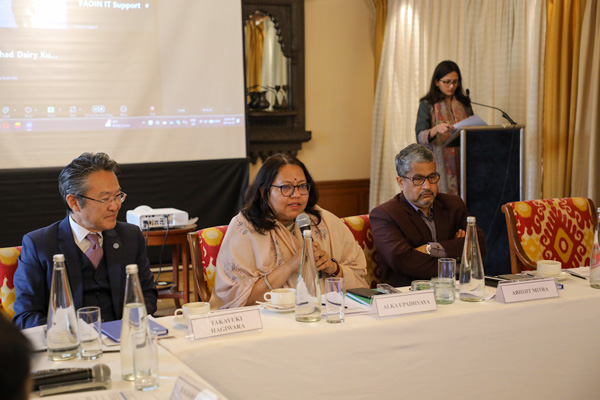 © FAO/D. Solanki © FAO/D. Solanki | INDIA FAO and DAHD explore nutraceutical potential of camel milk On 4 February, FAO and the Department of Animal Husbandry and Dairying (DAHD) organized a workshop in New Delhi to examine the nutraceutical and therapeutic potential of camel milk. Experts from the government, private sector, cooperatives and food safety sectors shared insights on research, policy, and market development. The workshop called for large-scale scientific studies on camel milk’s health benefits and emphasized the need for a research consortium and multi-sectoral approach to support herders, promote dairy diversification and conserve camel populations. | |
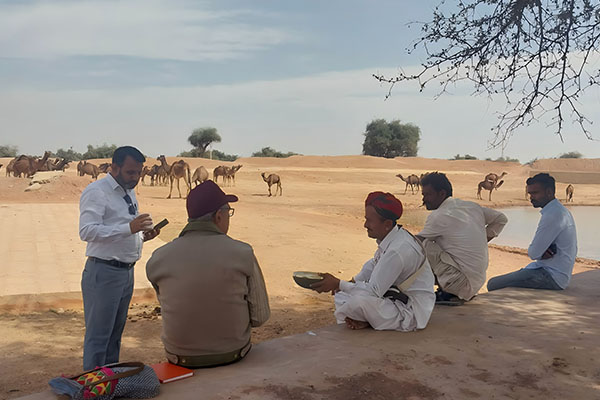 © FAO/M. Hasib | INDIA FAO explores camel milk value chain development in Rajasthan From 14 to 15 February, FAO, through its technical cooperation project (TCP), conducted a field mission to Devikot, Jaisalmer—home to over 4 000 camels—to assess opportunities for camel milk aggregation and value addition. Engaging with herders and local stakeholders, the mission identified challenges and outlined a roadmap for inclusive value chain development. Existing initiatives by National Research Centre-Camel and the Government of Rajasthan were documented, with proposals for a sustainable model to enhance livelihoods and conserve indigenous camel breeds. | |
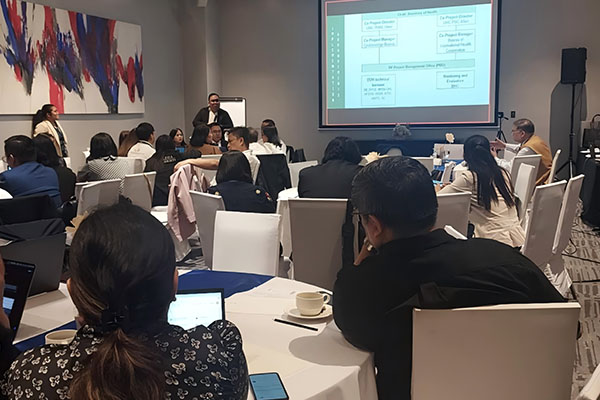 © FAO/Aleli Marasigan | THE PHILIPPINES FAO engages in multi-sectoral efforts to strengthen zoonotic disease preparedness FAO participated in the Philippine Inter-agency Committee on Zoonosis (PhilCZ) meetings held on 25 January and 31 March, supporting discussions on operationalizing the Philippine Pandemic Fund and mitigation measures for zoonotic diseases such as Q-fever and rabies. FAO also joined consultation meetings with the World Bank and national agencies to finalize implementation arrangements for the Philippine Pandemic Fund project, set for operationalization on 1 April. | |
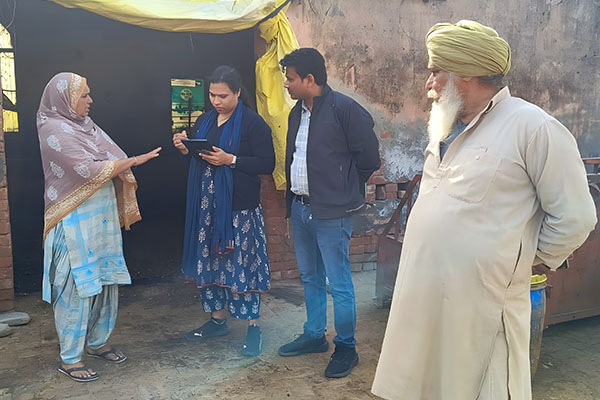 © FAO/S. Rout | INDIA FAO pilots clean milk scorecard to enhance dairy safety standards FAO piloted the clean milk scorecard in Meerut, Uttar Pradesh, under the TCP project, to strengthen milk safety standards and build smallholder capacity. The mission, held from 24 to 25 February, assessed on-farm practices, identified bottlenecks and provided recommendations for integrating the scorecard into training programmes. This initiative supports the development of a framework for handling, certifying and standardizing dairy products in line with national and international norms. | |
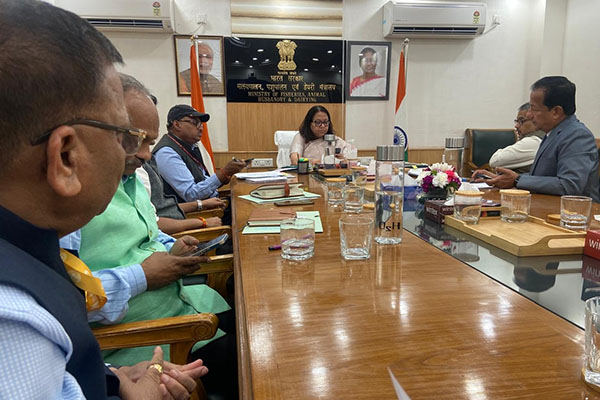 © FAO/Vikram Vashist | INDIA FAO Participates in first national steering committee meeting for Pandemic Fund On 20 March, FAO participated in the first national steering committee meeting for the Pandemic Fund project, chaired by DAHD. Together with the Asian Development Bank and the World Bank, FAO presented progress updates on In Service Applied Veterinary Epidemiology Training (ISAVET), stakeholder mapping, and collaboration with the Wildlife Institute of India. A network of 29 laboratories under INTEZ and INGeS has been established, with equipment procurement underway. FAO also outlined upcoming activities, including a sensitization workshop, virtual learning platform and field epidemiology training. | |
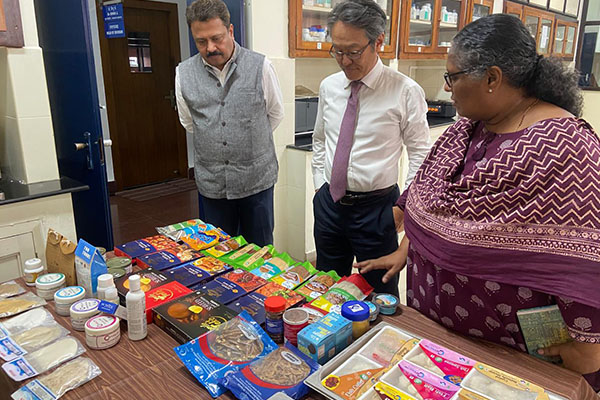 © FAO/Vikram Vashist | INDIA FAO conducts scoping mission to strengthen One Health capacities As part of the Pandemic Fund, FAO conducted a scoping mission to ICAR–National Institute of Veterinary Epidemiology and Disease Informatics Bengaluru and ICAR–Central Institute of Fisheries Technology Kochi from 25 to 26 March. Discussions focused on enhancing zoonotic disease surveillance through forecasting and early warning systems, and collaboration on aquaculture and antimicrobial resistance (AMR) management. The mission aimed to mobilize national expertise and identify pathways to strengthen food safety, veterinary epidemiology and public health within a One Health framework. | |
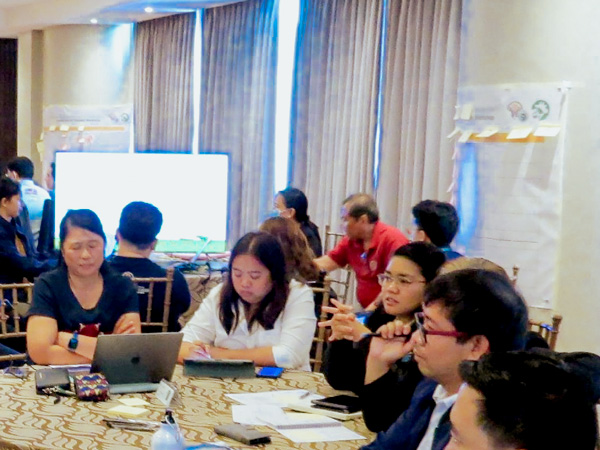 © FAO | THE PHILIPPINES FAO participates in animal disease prioritization and communication planning FAO contributed to the animal disease categorization and prioritization workshop organized by the Bureau of Animal Industry from 11 to 13 March, supporting efforts to establish evidence-based frameworks for efficient resource allocation and disease management. Additionally, from 25 to 28 March, FAO joined the foot-and-mouth disease (FMD) communication plan workshop in Tagaytay City, where stakeholders reviewed and updated strategies to maintain the country’s FMD-free status through improved information dissemination and coordinated communication efforts. | |
Learn more about our partnerships here. | ||
LABORATORY | ||
|
| INDONESIA FAO to renovate animal health laboratory in North Sulawesi FAO, with support from the Republic of Korea, will renovate the laboratory at the Centre for Animal Health and Veterinary Public Health in Manado, North Sulawesi, following an assessment on 21 February. The evaluation identified critical safety concerns, including structural damage and risks to staff and sample integrity. The facility, previously equipped for diagnostics such as ASF, has been out of service due to severe deterioration, including a ceiling collapse. Renovation, scheduled for March, will address technical and operational needs to restore safe laboratory functions. | |
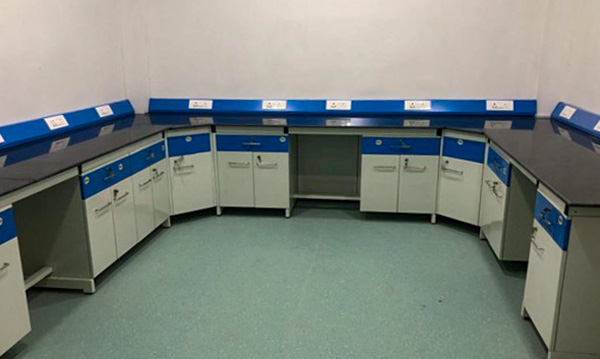 © FAO/Sambriddhi Nepal © FAO/Sambriddhi Nepal | NEPAL FAO supports renovation of veterinary laboratories to strengthen disease diagnostics FAO, with support from the Pandemic Fund’s Strengthening Pandemic Preparedness for Early Detection (SPEED) project, facilitated the renovation of veterinary laboratories in Dhangadhi and Biratnagar. Upgrades included modular furnishing in Dhangadhi and floor renovation in Biratnagar, enhancing operational capacity for disease diagnostics. The work was carried out in close coordination with the Central Veterinary Laboratory and respective local laboratories. | |
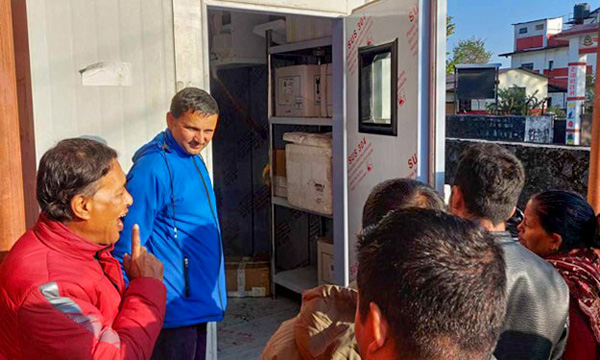 © FAO/Kiran Bhandari © FAO/Kiran Bhandari | NEPAL Training on cold chain and vaccine management capacities From 1 to 3 January, FAO conducted training on cold chain equipment maintenance and vaccine management in Chitwan, Tanahun and Kaski. A total of 58 staff from national and local veterinary institutions participated. The training, held in collaboration with the Department of Livestock Services and respective laboratories and hospitals, aimed to enhance vaccine handling and cold chain management practices. | |
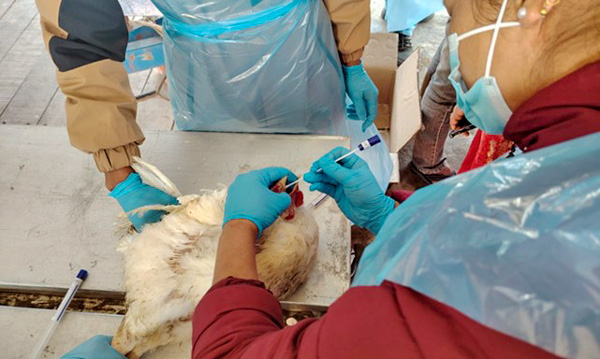 © FAO/Swochhal Shrestha © FAO/Swochhal Shrestha | NEPAL FAO supports training on sample collection and epidemiological reporting Through the Pandemic Fund SPEED project, FAO supported two training sessions on sample collection, dispatch and reporting in Sunsari and Udaypur districts from 1 to 4 January. Forty-two animal health professionals received hands-on training, with participating local level staff provided with sample collection kits. The training was conducted in collaboration with the Central Veterinary Laboratory, Department of Livestock Services, district veterinary hospitals and the Veterinary Laboratory in Biratnagar. | |
| Learn more about our work on capacity development of laboratory here. | ||
AFRICAN SWINE FEVER | ||
|
| CAMBODIA FAO launches Community Biosecurity Programme to control African swine fever In January, FAO, in collaboration with the General Directorate of Animal Health and Production, local offices in Takeo and Prey Veng, and Agronomes et Vétérinaires Sans Frontières, launched the Community African swine fever Biosecurity Intervention (CABI) Programme across 120 smallholder pig farms. The initiative aims to strengthen biosecurity and animal disease management at the community level, with farmers receiving tailored support based on detailed farm assessments. | |
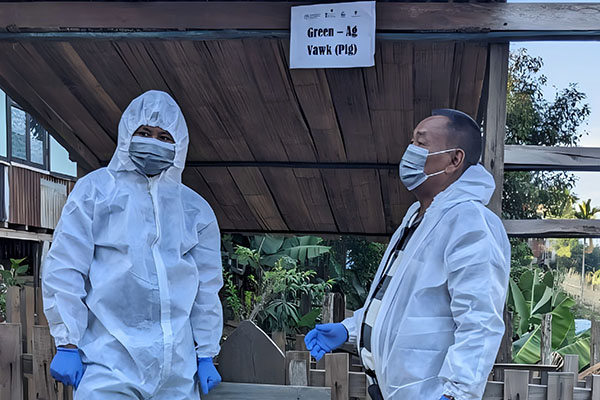 © FAO/Hanul Thukral | INDIA FAO strengthens biosecurity to combat ASF in Mizoram FAO organized biosecurity training for community resource persons and lead pig farmers in the Dampa Landscape, Mizoram, from 13 to 17 January. Supported by the German Environment Facility, the training covered farm biosecurity, waste management, disease prevention, hygiene practices, and vaccination. The initiative aims to improve disease management and reduce ASF risks in the region. | |
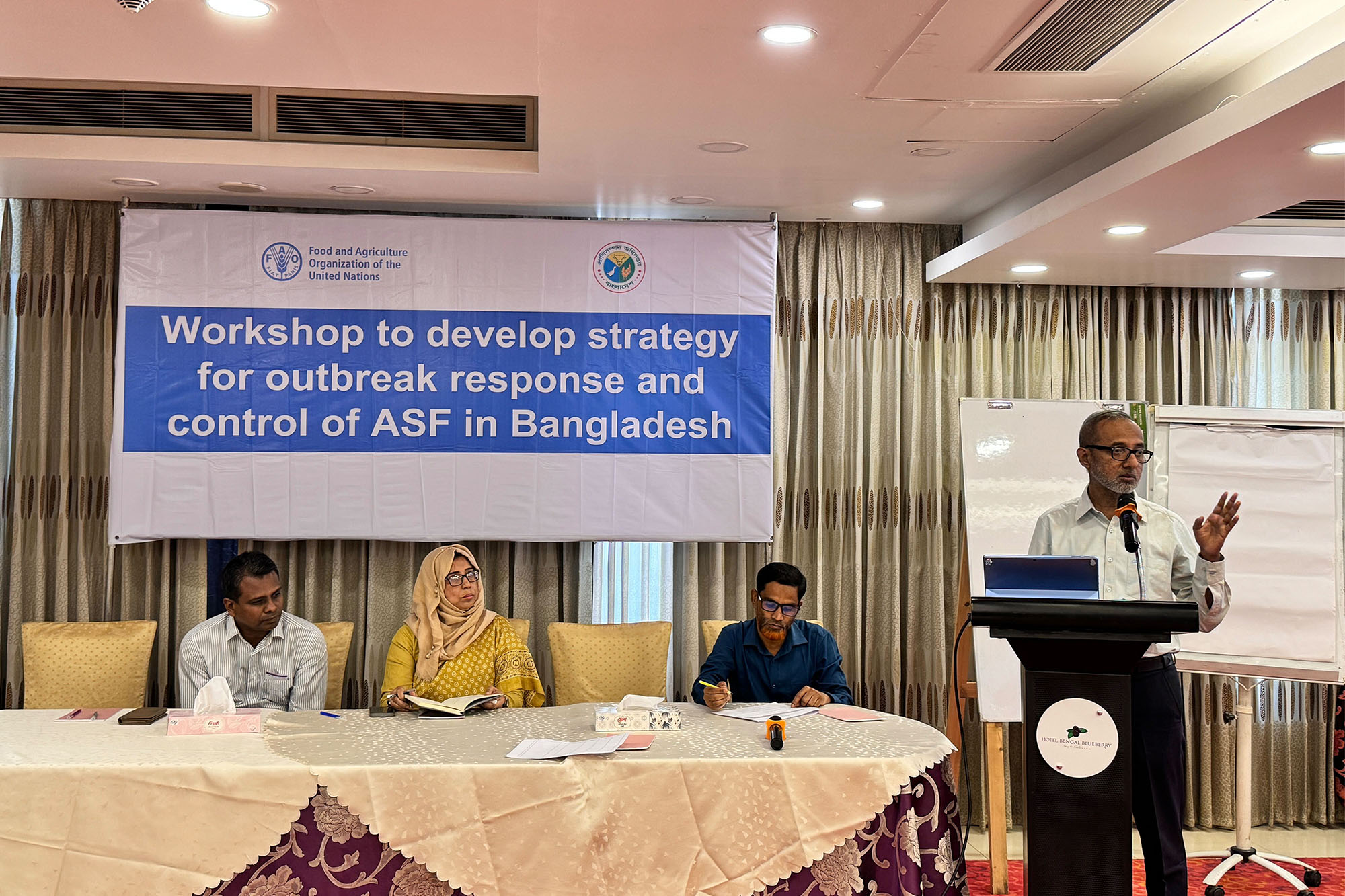 © FAO Bangladesh | BANGLADESH FAO supports development of ASF outbreak response strategy On 4 March, FAO facilitated a workshop in Dhaka to develop a national strategy for ASF outbreak response and control. Government officials, veterinarians, researchers and industry representatives discussed the current ASF situation, identified gaps in existing mechanisms, and outlined a strategic framework defining stakeholder roles and responsibilities. The workshop enhanced participants’ understanding of ASF management in Bangladesh. | |
|
| INDONESIA FAO assesses ASF diagnostic capacity at Disease Investigation Centre Medan FAO, supported by the Republic of Korea, assessed cell culture, virus isolation practices and ASF diagnostic capacity at the Disease Investigation Centre (DIC) Medan from 6 to 8 February. The evaluation identified areas for improvement, and FAO will procure essential supplies to strengthen diagnostics. Plans include deploying a Korean expert for tissue culture training and organizing outreach to raise awareness of DIC Medan’s diagnostic role, helping stakeholders better understand its capabilities and functions. | |
| Learn more about our work on ASF here. | ||
CAPACITY DEVELOPMENT | ||
|
© FAO/Nguyen Hong Minh | VIET NAM Farmer Field School pilot delivers impressive results A pilot Farmer Field School in Thai Nguyen, supported by the Department of Animal Health and Production and the UK’s Fleming Fund, demonstrated strong results in promoting sustainable poultry farming. Involving 30 farmers across three districts, the initiative model improved husbandry practices, biosecurity and responsible antibiotic use. Participants reported better poultry health, reduced disease risks, lower costs and a significant decrease in antibiotic use, alongside improved farm sanitation and nutrition management. The initiative supports food safety, environmental sustainability and rural livelihoods, with plans to scale nationally. Read the news here. | |
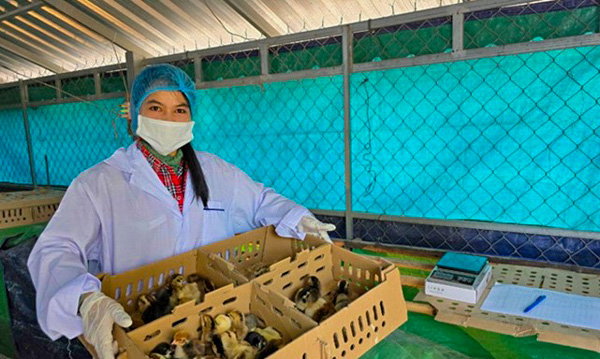 © GDAHP | CAMBODIA FAO empowers poultry farmers through Farmer Field School training FAO, in collaboration with the General Directorate of Animal Health and Production (GDAHP), the Takeo Office of Animal Health and Production and the Royal University of Agriculture, conducted training for 30 poultry farmers in Takeo province from 6 to 24 January. Supported by the Fleming Fund, two Farmer Field Schools were established to promote good broiler farming practices, strengthen antibiotic stewardship, and enhance poultry production. The delivery of the first batch of day-old chicks marked progress towards improved animal husbandry. | |
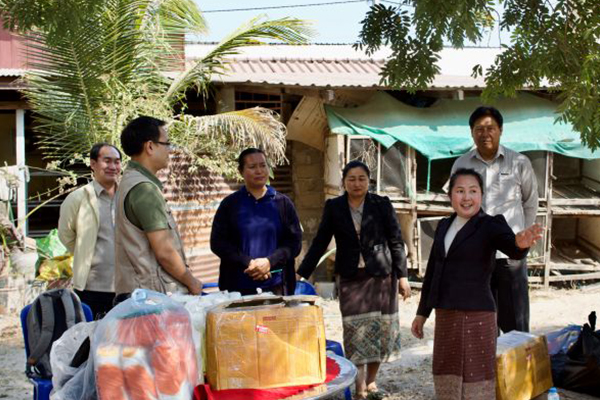 © FAO/Tweexap Somvichith | LAO PEOPLE’S DEMOCRATIC REPUBLIC FAO supports poultry farmers through broiler Farmer Field School Initiative FAO, in collaboration with the Department of Livestock and Fisheries, provided resources worth over USD 4 600 to ten small-scale broiler farmers in Naxaythong District, Vientiane Capital, under the broiler Farmer Field School initiative. The supplies will enable farmers to apply best practices in biosecurity, antimicrobial stewardship, and poultry production, following FAO-led training. Supported by UK Aid through the Fleming Fund, this initiative aims to strengthen the poultry sector and reduce antimicrobial resistance risks. | |
| Learn more about our work on capacity development here. | ||
EPIDEMIOLOGY | ||
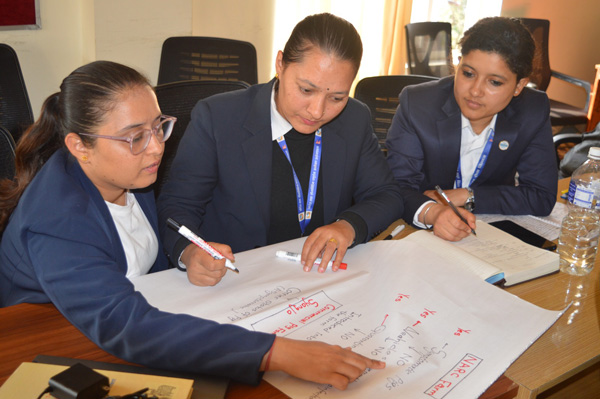 © FAO Nepal | NEPAL Nepal graduates its first cohort of veterinarians trained in field epidemiology to strengthen animal disease surveillance Thirteen government veterinarians completed Nepal’s first Field Epidemiology Training Programme for Veterinarians (FETPV), organized by FAO and partners with support from the Pandemic Fund. The training enhanced capacities in surveillance, outbreak investigation and data analysis, strengthening Nepal’s ability to address animal health threats and prevent zoonotic diseases. Read the news here. | |
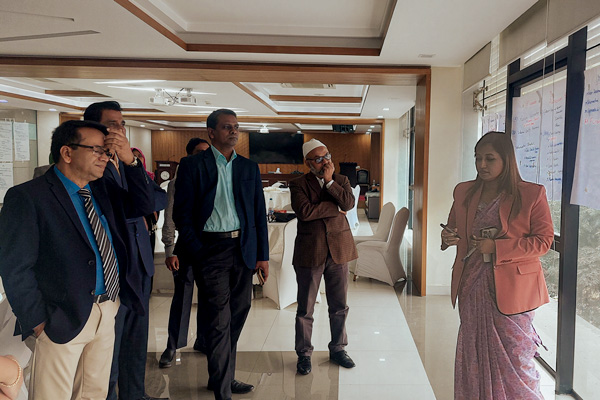 © FAO Bangladesh | BANGLADESH FAO supports development of foot-and-mouth disease clinical management guidelines On 5 February, FAO, under its emergency TCP on controlling foot-and-mouth disease (FMD) and African swine fever (ASF), supported a workshop in Dhaka to develop clinical management guidelines for FMD. The workshop brought together stakeholders and academicians to review Bangladesh’s FMD situation and management practices. Participants discussed and outlined the contents of the guidelines to strengthen national response efforts. | |
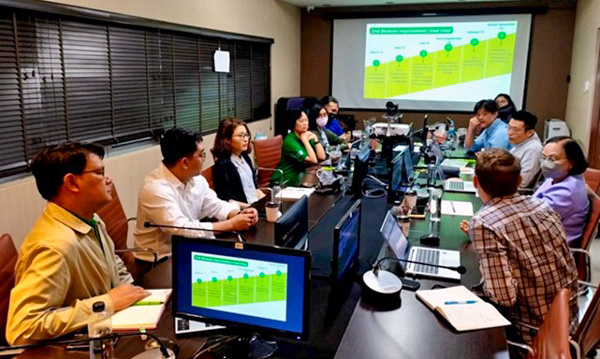 © FAO/Yin Myo Aye © FAO/Yin Myo Aye | ASIA AND THE PACIFIC RFETPV workshop enhances mentorship management The Regional Field Epidemiology Training Program for Veterinarians (RFETPV) held a brainstorming workshop to enhance mentorship management on 15 January. Mentors, alumni and project staff reviewed mentoring processes, clarified roles and timelines and proposed improvements to enrich mentor–trainee experiences. Inputs, including those from FAO RAP, will inform the refinement of mentorship practices and the development of an online platform to support future activities. | |
| Learn more about our work on epidemiology here. | ||
ONE HEALTH | ||
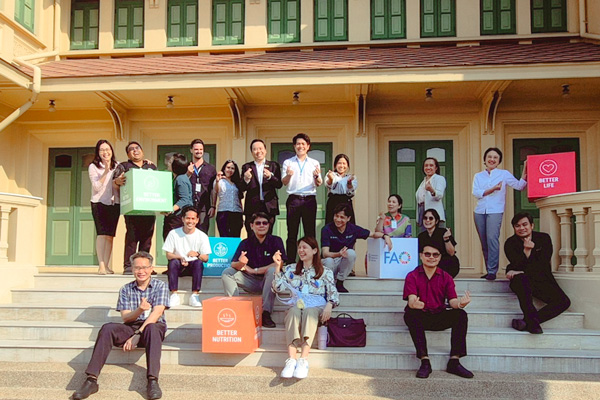 © FAO | ASIA AND THE PACIFIC Thailand joint collaborative activities for One Health Since 25 February, FAO, WHO country office, and representatives from animal, human and environmental health sectors in Thailand have been meeting weekly to develop joint activities using the theory of change. These efforts aim to accelerate One Health implementation for the prevention, detection, and response to public health threats of animal origin in Thailand. Outcomes will also inform the development of a third-round Pandemic Fund proposal. | |
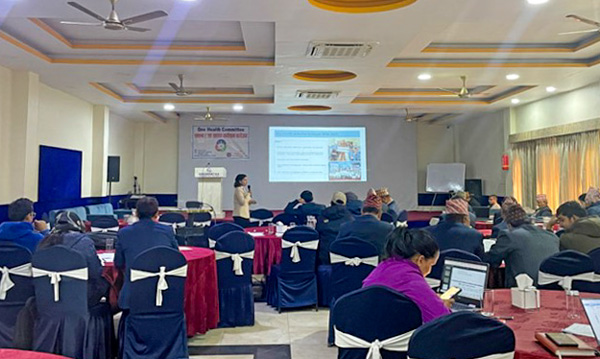 © FAO/Shrijana Khanal | NEPAL Provincial One Health workshops in Karnali and Sudurpaschim provinces From 5 to 12 January, FAO supported provincial One Health workshops in Surkhet and Dhangadhi to facilitate the formation of Provincial One Health Committees. Over 120 stakeholders from animal, human, and environmental health sectors participated. The workshops were conducted in collaboration with the Epidemiology and Disease Control Division and the Department of Livestock Services. | |
 © FAO/UNEP/WHO/WOAH | ASIA AND THE PACIFIC Handover of the Regional Quadripartite Secretariat and ASEAN project planning WHO SEARO handed over the Asia-Pacific Regional Quadripartite Secretariat at the UNEP Regional Office on 17 March. FAO, WHO, WOAH and UNEP also discussed work planning for the ASEAN project supported by the UK Health Security Partnership (HSP). The project, under HSP Component 3, contributes to the ASEAN-UK Plan of Action 2022–2026, promoting coordination and collaboration across sectors involved in One Health. | |
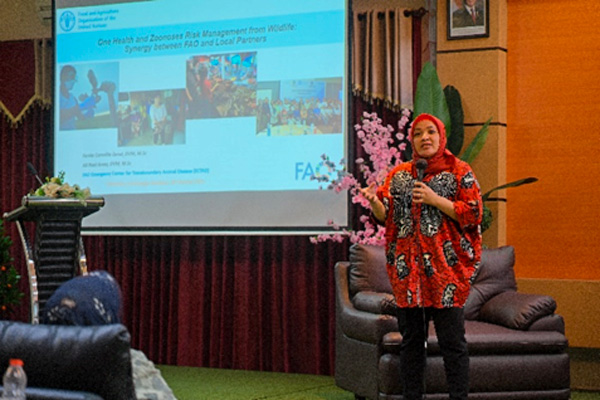 © FAO © FAO | INDONESIA FAO promotes One Health at university talk show on wildlife and pandemics FAO participated in a talk show on wildlife, pandemics, and One Health at Airlangga University, Surabaya, on 20 February. The event engaged students and representatives from the East Java Natural Resource Conservation Center, highlighting zoonotic disease risks in wildlife ecosystems and emphasizing the importance of multisectoral collaboration through a One Health approach to mitigate the threat of zoonoses and potential future pandemics. FAO will continue supporting awareness-raising initiatives with Airlangga University through talk shows, seminars and workshops. | |
| Learn more about our work on One Health here. | ||
ANTIMICROBIAL RESISTANCE (AMR) | ||
 © FAO/Bushra Owaisy | INDIA Strengthening AMR action in Sikkim through advocacy FAO organized the second antimicrobial resistance (AMR) state-level advocacy meeting in Sikkim last 10 January as part of the European Union (EU) AMR Tripartite project. Although Sikkim has its own State Action Plan (SAP) on AMR, it faces challenges in implementation, financing, infrastructure, and human resources. The meeting engaged state governments through advocacy efforts, technical presentations, and group activities to expedite SAP implementation. Additionally, a mission to Sikkim’s AMR diagnostic laboratory assessed data-sharing mechanisms and identified challenges. Technical interventions were recommended to strengthen the animal health sector. | |
|
| INDONESIA | |
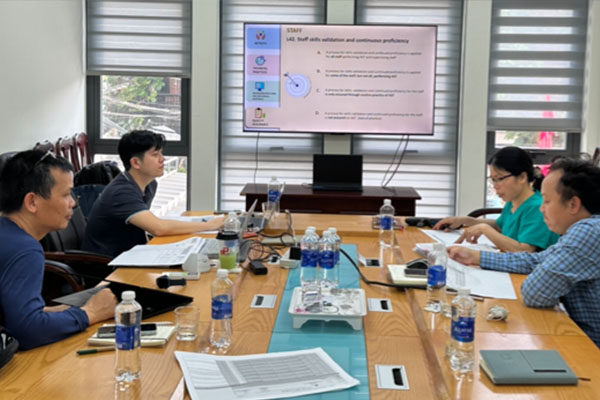 © FAO | VIET NAM | |
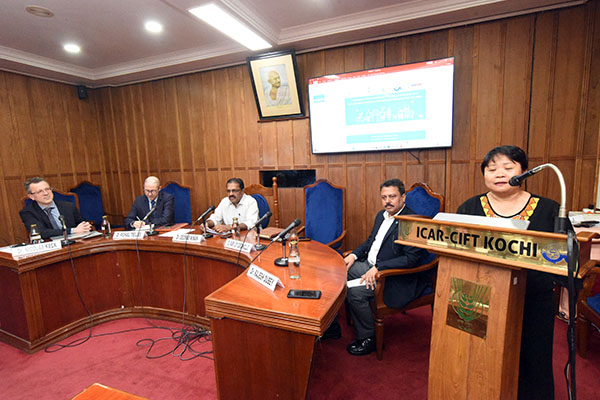 © FAO/Robin Paul | INDIA AND ASIA AND THE PACIFIC FAO conducts ATLASS training to strengthen AMR surveillance in livestock and fisheries sector FAO organized training on the FAO Assessment Tool for Laboratories and Antimicrobial Resistance Surveillance Systems (ATLASS) tool to build national capacity for AMR surveillance in the livestock and fisheries sectors from 20 to 22 January. Over 35 participants were trained as ATLASS assessors, equipping them to lead AMR surveillance efforts at the national level. The session fostered collaboration and built a cohesive network of national assessors to ensure standardized and effective AMR surveillance across sectors. | |
|
| LAO PEOPLE’s DEMOCRATIC REPUBLIC FAO shares lessons on AMR at TADEU stakeholder meeting On 25 February, FAO participated in the Technical Assistance for Data and Evidence Use (TADEU) Asia stakeholder meeting in Vientiane, sharing experiences in AMR management. The meeting introduced an AMR surveillance costing tool developed by the TADEU project, funded by the International Vaccine Institute through the eSHIFT partner network, has been established to measure the impact of an antimicrobial stewardship program, estimate AMR economic burden and compare costs and outputs of AMR surveillance. Discussions focused on improving the tool’s application in Lao People’s Democratic Republic to support antimicrobial stewardship and assess AMR’s economic impact. | |
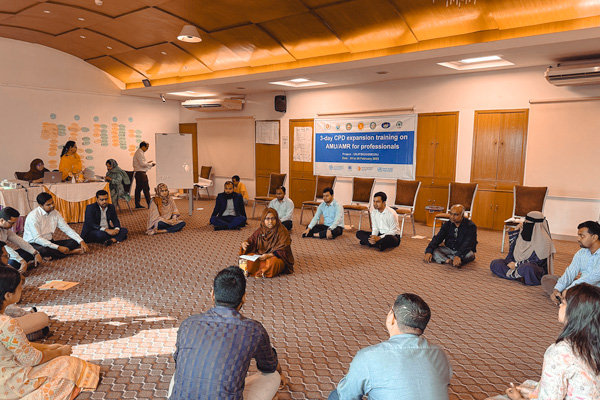 © FAO Bangladesh © FAO Bangladesh | BANGLADESH FAO delivers CPD training on AMU/AMR for health professionals From 24 to 26 February, FAO organized a continuing professional development (CPD) training on antimicrobial use (AMU) and antimicrobial resistance (AMR) for human and animal health practitioners. Supported by the UK Fleming Fund, the training focused on promoting prudent and responsible antibiotic use in line with Bangladesh’s antibiotic guidelines. | |
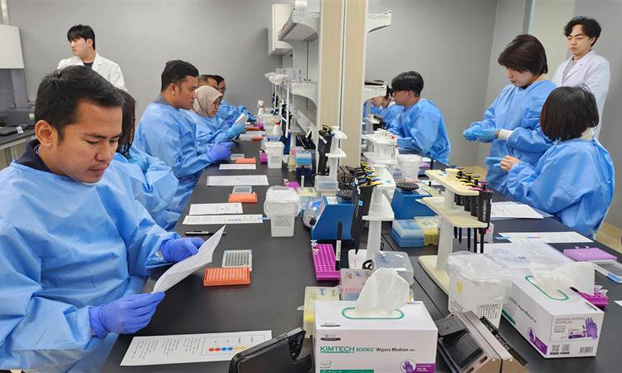 © FAO | THE PHILIPPINES FAO Strengthens AMR surveillance capacity through laboratory training From 14 to 17 January, FAO, in collaboration with the Bureau of Animal Industry’s Animal Disease and Diagnosis Reference Laboratory and the FAO AMR Reference Center at Chulalongkorn University, conducted a training workshop on Salmonella serotyping, Campylobacter isolation, ESBL detection, and epidemiological cut-off and clinical breakpoint determination. Sixteen laboratory staff from the Department of Agriculture’s national animal health laboratories participated. The training aimed to enhance technical capacities for AMR surveillance in the animal health sector. | |
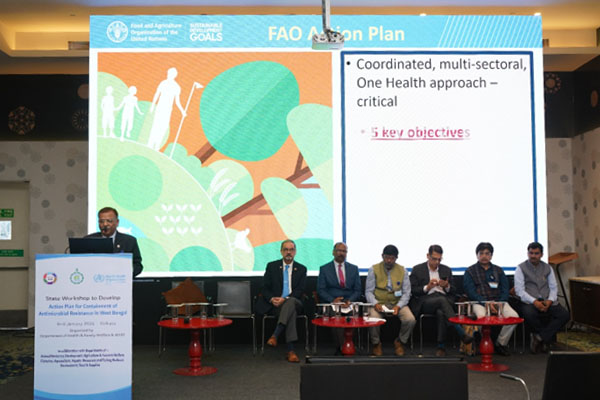 © FAO/RK Singh | INDIA FAO contributes to West Bengal’s AMR Action Plan development In early January, FAO participated in a WHO-led workshop to develop the West Bengal Action Plan for Containment of AMR (WB-APCAR). FAO provided technical inputs, co-chaired sessions and presented its AMR priorities, supporting multisectoral efforts to strengthen AMR containment in the state. | |
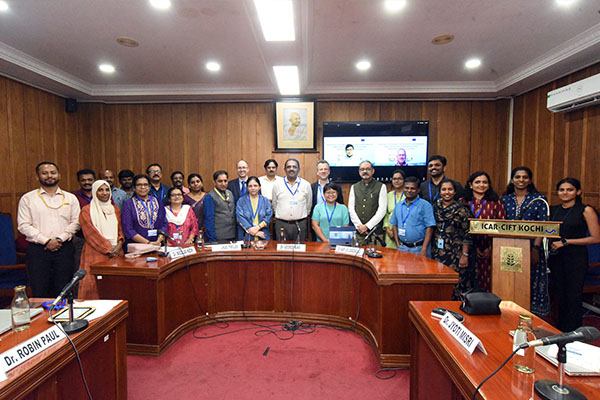 © FAO/Robin Paul | INDIA AND ASIA AND THE PACIFIC FAO hosts first AMR lab network meeting FAO convened the first AMR lab network meeting in Kochi, Kerala, with INFAAR, WHO and UNEP on 23 January. Supported by the EU AMR Tripartite project, the meeting identified gaps and needs in AMR lab capacity and discussed establishing a national multisectoral laboratory network. With 22 participants in attendance, the meeting resulted in key recommendations for strengthening coordination in multisectoral AMR laboratory networking in India. | |
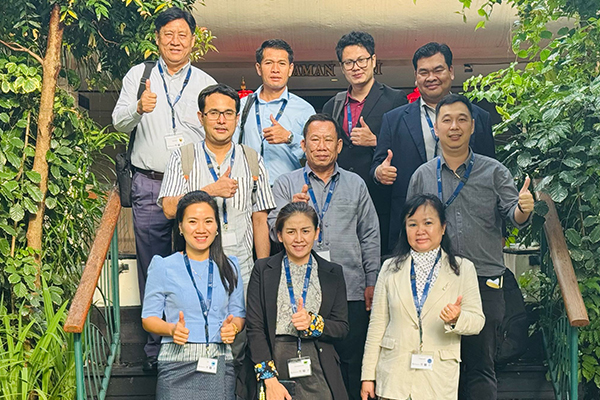 © FAO/Supatsak Subharat | LAO PEOPLE'S DEMOCRATIC REPUBLIC FAO participates in regional workshop on One Health and AMR and AMU decision-making FAO joined the regional workshop on “One Health in practice: Using AMR and AMU knowledge to drive optimal decision-making” in Bali, Indonesia, from 17 to 21 February. The workshop, hosted by the Antimicrobial Resistance and One Health Fleming Fund Regional Grant for Southeast Asia (AMROH-SEA), gathered government officials, development partners, academia, and private sector representatives. Country teams, including from Lao People’s Democratic Republic, enhanced their understanding of AMR, AMU and AMC surveillance data to inform policy and antimicrobial treatment guidelines. The event also fostered regional collaboration and knowledge exchange. | |
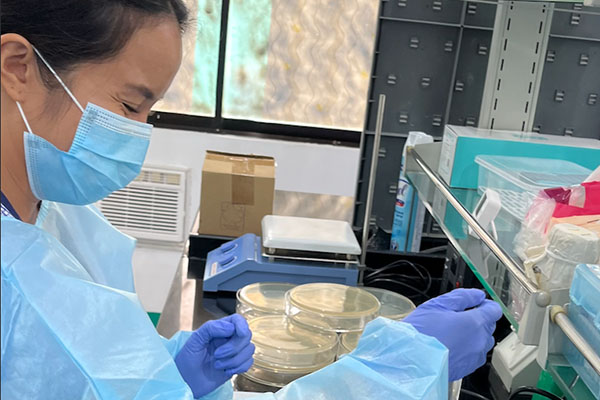 © FAO/Ralph Cabug | THE PHILIPPINES Refresher training to support AMR surveillance and laboratory capacity building From 10 to 14 February, FAO and the Bureau of Animal Industry (BAI) conducted refresher training and parallel testing on bacterial isolation, identification and antimicrobial susceptibility testing (AST) for the regional animal disease diagnostic laboratory IX in Zamboanga Sibugay. The laboratory was also assessed using the FAO ATLASS tool, marking it as the second sub-national lab to undergo this evaluation. Recommendations were provided to harmonize procedures under the national AMR surveillance of diseased livestock. | |
| Learn more about our work on AMR here. | ||

fao_sadewa_thumb_web.jpg?sfvrsn=3ff05b86_1)
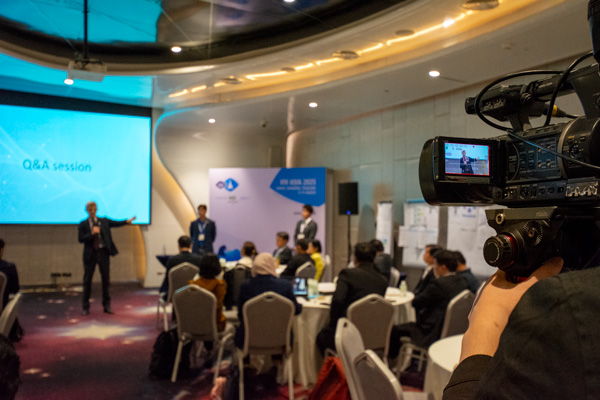
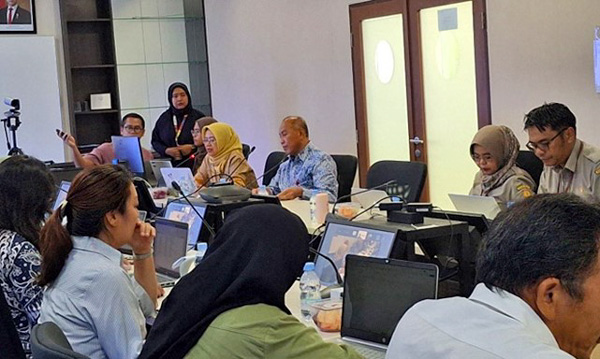 © FAO/Azzam Rabbani
© FAO/Azzam Rabbani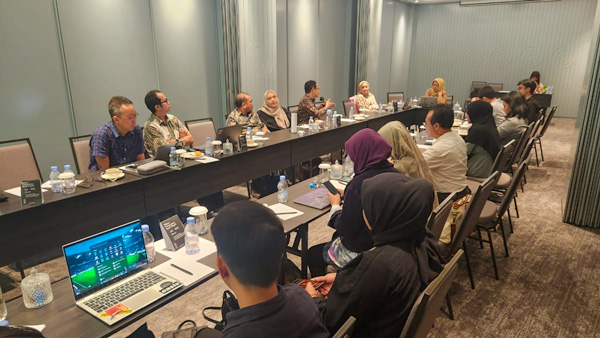 © FAO/Andri Jatikusumah
© FAO/Andri Jatikusumah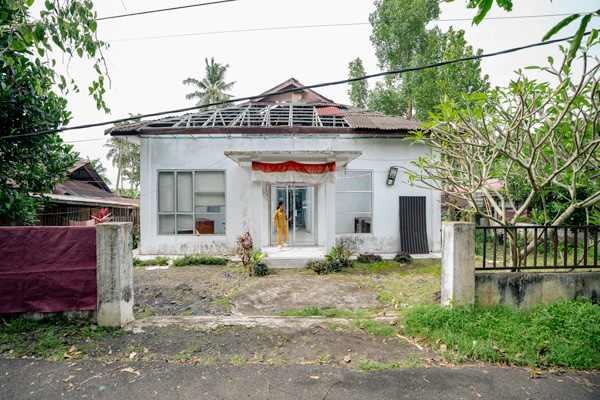 © FAO/Taufany Eriz
© FAO/Taufany Eriz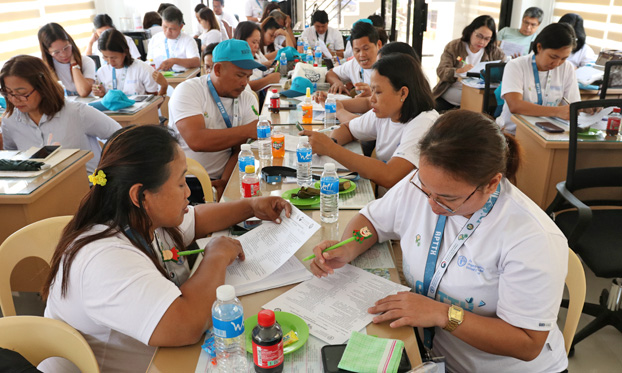 © FAO
© FAO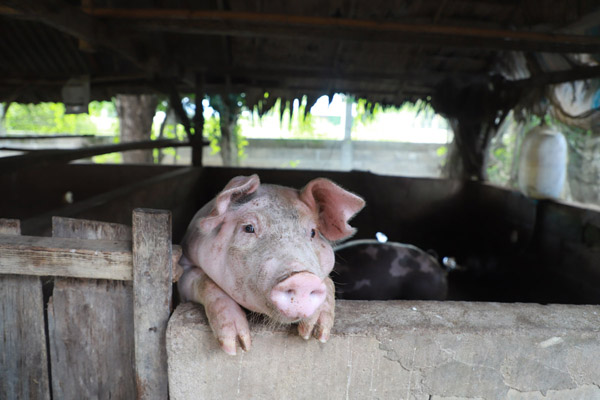 © FAO
© FAO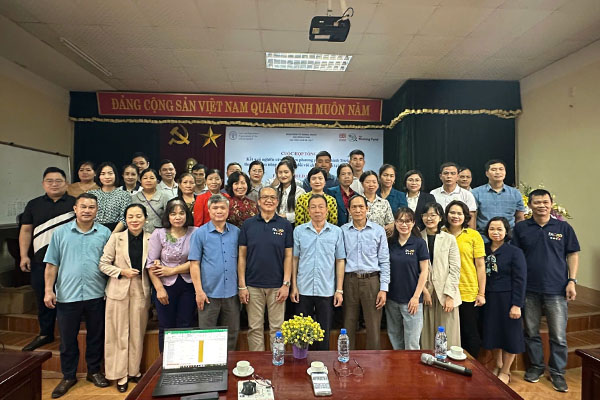
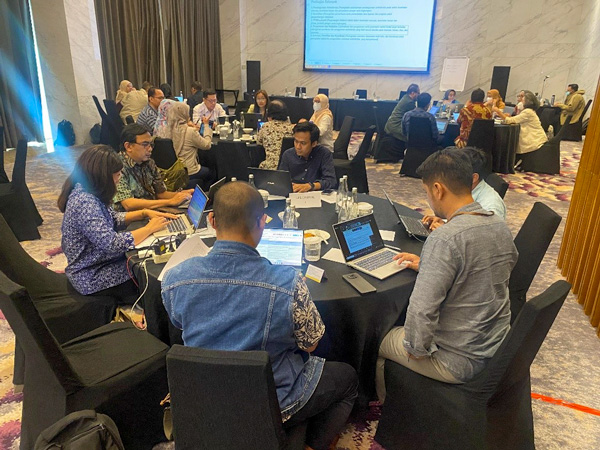 © FAO/Cresensia Hadiyanti
© FAO/Cresensia Hadiyanti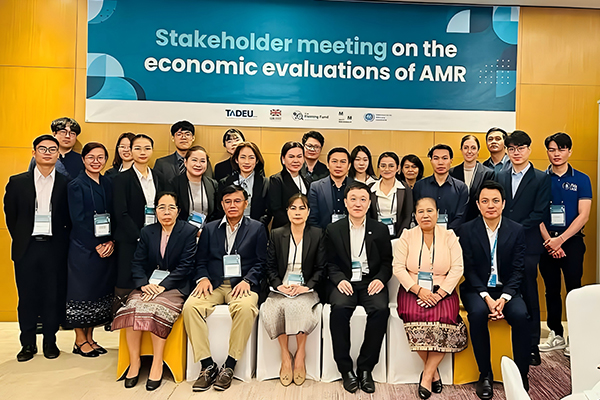 © TADEU
© TADEU